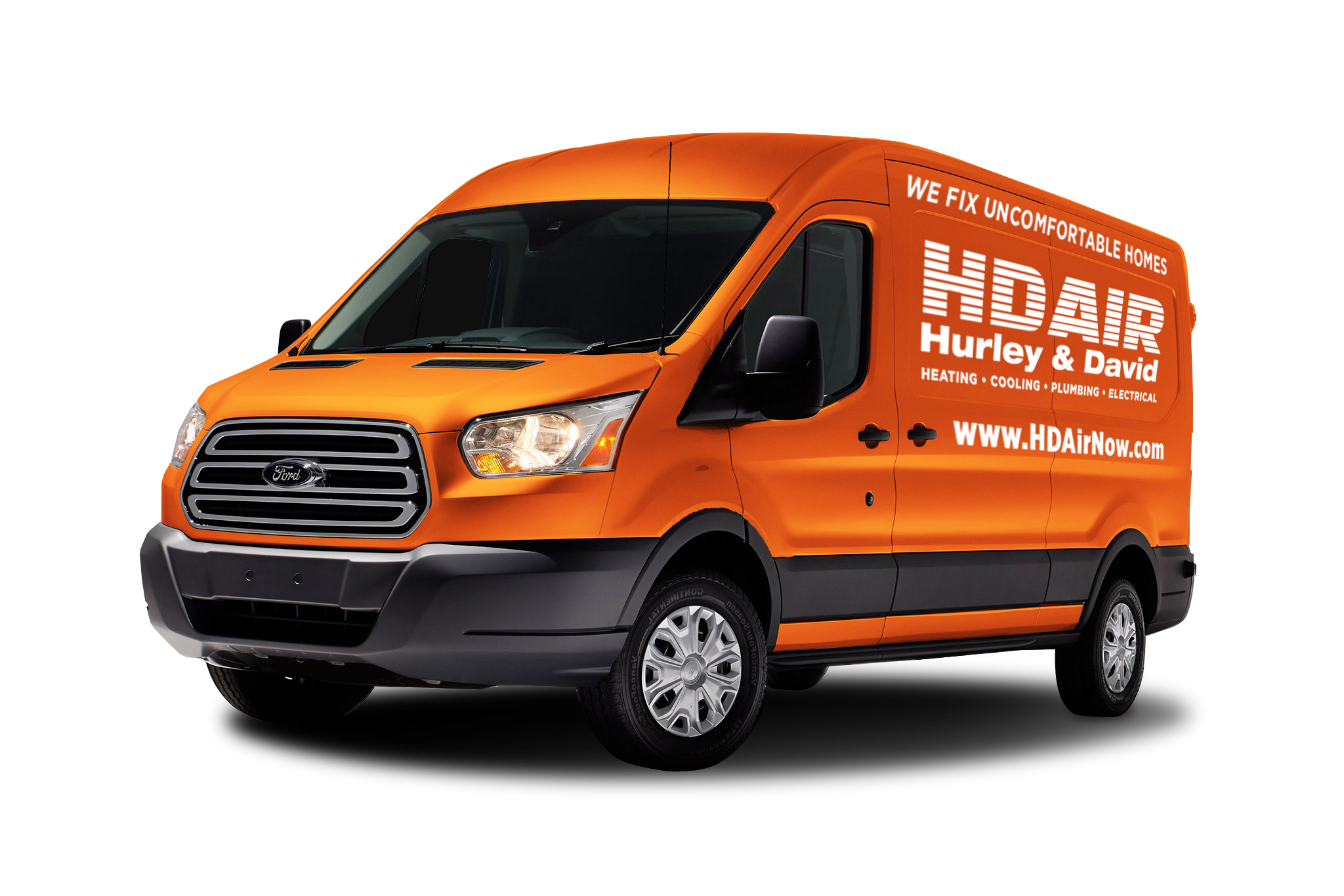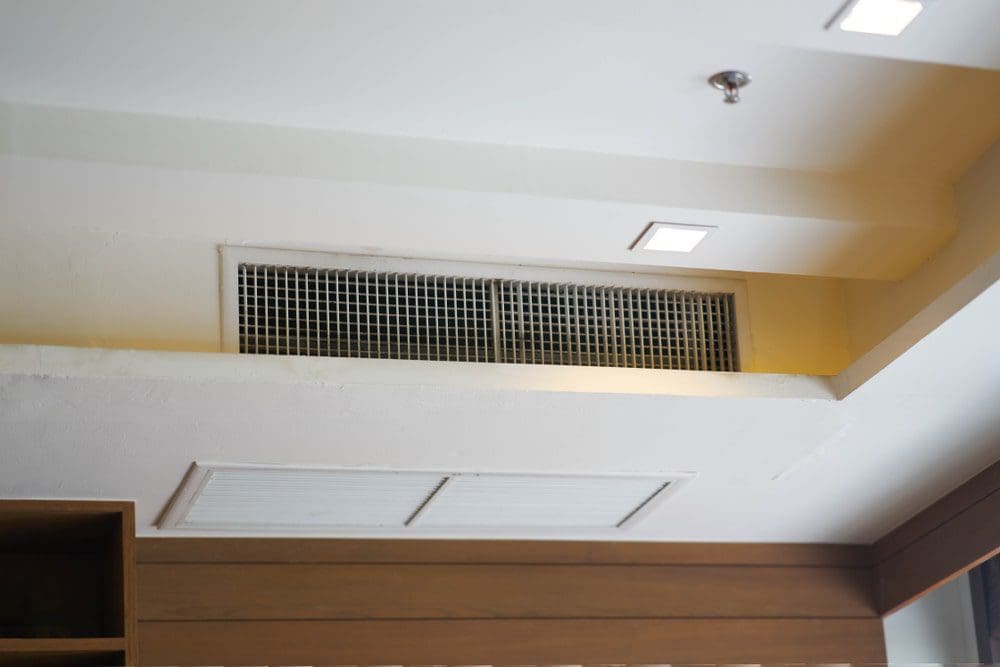
The terms “central air” and “forced air” are often used interchangeably, leading to confusion between the two. While they share some similarities, the main distinction lies in their specific roles within the HVAC system.
Central Air vs Forced Air – The Key Difference
“Central air” refers to the air conditioning unit itself, responsible for cooling the air, whereas “forced air” pertains to the air distribution system that circulates both warm and cool air throughout the house. During a typical whole-home HVAC installation, the process may involve replacing the central air conditioning unit and connecting it to the existing forced air system, ensuring efficient and effective temperature control throughout the entire home.
Understanding this difference clarifies the relationship between central air and forced air and HD Air is here to shed light on their respective functions within the overall HVAC framework.
What Is Central Air?
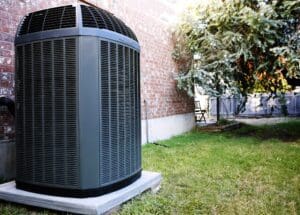
Central air conditioning is a convenient HVAC solution designed to keep your whole house cool. This powerful system pulls in warm indoor air before guiding it outside, where it gets cooled down by a dedicated unit. The cooled-down air returns to your home via conveniently located ducts and emerges from every vent positioned within all rooms.
Benefits
Although central air conditioning is primarily known for ensuring comfortable living conditions, it offers other notable benefits you want to consider. These include:
1. Energy Efficiency
This system can help save on energy costs by improving your home energy efficiency. Unlike having multiple air conditioners in your home to cool different rooms, central air can cool the entire house using less power. While this is great for the environment, it’s also good for your budget.
2. Improved Air Quality
Along with cooling your home, this system will help clean the indoor air, making it healthier to breathe. When it sucks in warm air to cool it down, it pushes it through a filter system to catch allergens, dust, and other particles before moving the cleaned air back into the house.
3. Reduced Noise
Air conditioners can be loud, but you don’t have to consider the noise with central air. Since the main unit goes outside, you’ll barely hear it when it switches on, giving you a quieter space.
Drawbacks
Like anything you buy, this system has a few drawbacks. However, we want you to get a good understanding of each when looking into upgrading your system.
1. High Upfront Cost
Choosing this system can have a higher upfront cost. The equipment and the labor costs for installing it can quickly add up. However, you could balance this out with lower energy bills.
2. Frequent Maintenance and Repair
Just like your car, your central air needs regular maintenance and checkups to keep it running in top shape. During air conditioning maintenance, the tech may find a part that they need to replace or fix, which can be expensive.
3. Requires Professional Installation
This isn’t a project you tackle by yourself when it comes to installing this system. You want to call in a professional tech to ensure they do the installation correctly and safely. Again, the labor is something you’ll factor into the initial cost.
What Is Forced Air?
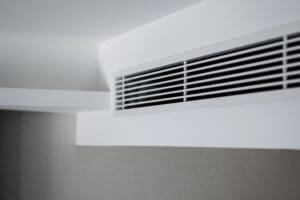
Forced air units are very common to help you cool or heat your home. They come equipped with an air conditioner or furnace that will allow you to adjust your indoor temperature. The system forces or pushes the air using a blower fan through the ductwork in your home. The air comes out of vents installed in each room, and this helps create a uniform temperature.
Benefits
Forced air setups are very popular to help you cool and heat your space. They come with several benefits that include but are not limited to:
1. Lower Upfront Cost
When comparing forced air systems to other options, it appears that they are typically more wallet-friendly regarding labor and installation expenses.
2. Easy Installation and Maintenance
This option usually has lower air conditioning maintenance and installation fees, making them less of a hassle.
3. Flexibility in Zoning
This system lets you adjust the temperature in different rooms or zones in your home, allowing you to personalize how each area feels.
Drawbacks
This system also has a few key drawbacks you need to be aware of before you install it, including:
1. Inconsistent Heating and Cooling
You can get uneven temperature distribution with this system so that some rooms may feel hotter or cooler than others.
2. Lower Energy Efficiency
When you compare it to specific systems, this one may be less energy efficient, which can increase utility bills.
3. Poorer Air Quality
Without the proper filtration and scheduled maintenance, this system can push allergens, dust, and pollutants through your house to lower air quality.
Forced Air vs Central Air – Which One is Better
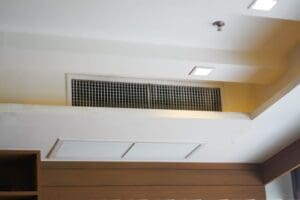
So what is the difference between central air vs forced air? In summary, the term “forced air” encompasses both heating and cooling, while central air specifically refers to the cooling aspect of the forced air system.
Picking your house’s best cooling and heating system can significantly affect your utility bills and how comfortable you are. Central air and forced air are popular, so let’s see how they compare.
How They Function
Both systems use ducts to move the air through your home, but how they do so is where they start to differ. A forced air system has a furnace that heats the air and an air conditioner to make it cooler. On the other hand, central air is a system that has an outdoor compressor to cool the air and a coil system that removes the heat and then pushes the cooled air back into the home.
Which One Is Better
These terms are often used interchangeably because your central air system will use the forced air system’s vents and ducts to deliver cool air into your home.
- Energy Efficiency – Central air is usually more energy-efficient because it comes designed specifically to cool the space. This makes them more energy-efficient overall, but you can always double-check the AC SEER Rating if you have doubts.
- Air Quality – Both can improve your air quality if they have good filtration. However, central air units win out because they can have advanced air purifiers built in.
- Cost – Forced air is usually more cost-effective upfront, and central air systems are more expensive for air conditioning installation. Still, they pay off with greater energy efficiency.
Your Comfort, Our Priority
Both systems have benefits and drawbacks. Our comfort consultants will help you consider what setup is best for your needs, and you can schedule online now to get a free estimate for your new system. Let’s make your home the most comfortable it can be together.


